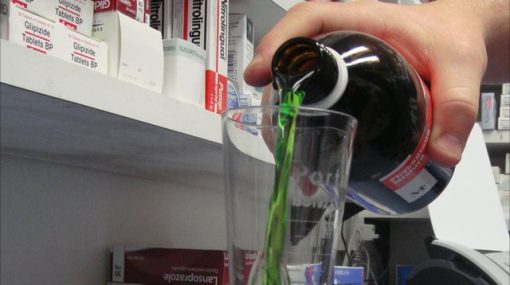7 Myths About Methadone Treatment Programs, Debunked
If you or someone you know is seeking treatment for addiction to heroin, morphine, or another opiate, you may have heard about how methadone treatment programs can treat addiction by easing opiate withdrawal symptoms.
While methadone treatment programs have been proven successful at helping addicts recover, there is much controversy in regards to how healthy and effective these programs really are.
The more you know about methadone treatment, the better you can understand just how well these programs work at helping addicts achieve lifelong sobriety. Here are 7 myths about methadone treatment programs, debunked to help educate you about how these treatment programs work.
If you or a loved one is struggling with opiate addiction, call our toll-free helpline at 800-994-1867Who Answers? to speak with an addiction counselor. Our staff is here to help, and can provide you with the resources you need to overcome your addiction and get back to living a satisfying, fulfilling life.
Myth #1: Methadone Gets You High
Methadone is a synthetic opioid drug that helps provide relief from opiate cravings, and blocks feelings of euphoria triggered by opiates such as heroin and morphine. Methadone won’t get you high, so you can expect to feel sober while taking this medication.
Getting high from methadone is only possible if you take the medication more frequently than prescribed, which is difficult to achieve in rehab since methadone doses are closely monitored by medical staff.
Myth #2: Methadone Makes You Sick

Methadone treatment itself doesn’t cause weight gain.
Methadone itself doesn’t make you sick; however, you may feel sick when you first start taking methadone due to minor withdrawal symptoms from other opiates. Methadone may not provide full relief for all withdrawal symptoms, depending on your opiate tolerance, and on the dose of methadone you’re being provided.
Myth #3: Methadone Causes Rotten Teeth
Methadone doesn’t directly cause your teeth to rot, but can lead to dry mouth, which is a common side effect of methadone and many other medications. Since saliva naturally helps wash away bacteria in your mouth, dry mouth can increase the risk for bacteria buildup, which in turn, increases the risk for rotten teeth and gum disease. To prevent gum disease, maintain good oral hygiene by flossing and brushing your teeth regularly.
Myth #4: Methadone Weakens Bone Health
Some recovering addicts who take methadone may experience aching bones, or “bone rot” due to taking too low a dose. Aching bones is often a symptom of methadone withdrawal, and can happen during the tapering phase, which is when your physician prescribes lower doses of methadone to wean you off the medication. If bone ache becomes too uncomfortable or painful to live with, consult with your physician immediately to discuss the possibility of a dose adjustment.
Myth #5: Methadone Causes Weight Gain
Some perceive that methadone triggers weight gain, considering many recovering addicts tend to gain weight during addiction treatment. However, methadone itself doesn’t contribute to weight gain, but instead, helps addicts become healthier by improving their appetites. Don’t hold off on addiction treatment for fear you’ll gain weight during the program; instead, combat potential weight gain by eating healthy, nutritious foods and exercising regularly.
Myth #6: It’s Difficult to Stop Taking Methadone
A common misperception about methadone is that it’s difficult to stop taking the medication, considering the drug is an opiate itself. However, methadone doses are closely monitored by staff at your methadone treatment program, and will gradually be reduced over a period of time to prevent you from experiencing methadone withdrawal symptoms. When joining a methadone treatment program, understand that your healthcare team will guide you safely through the methadone tapering process.
Myth #7: People Who Use Methadone Are Still Addicts
Methadone is a prescribed medication that helps addicts overcome dependence on opiates, and is no more an addictive drug than insulin for diabetics, or antidepressants for those with mental disorders. Methadone is a medication and should be viewed as such, and helps recovering addicts improve and better their lives during and after treatment.
Don’t let common myths and misperceptions about methadone treatment programs prevent you or your loved one from seeking addiction treatment. Methadone centers help treat opiate addiction by prescribing methadone doses that help ease withdrawals and reduce cravings so patients can go on to live healthier and more fulfilling lives following treatment.
Call our helpline at 800-994-1867Who Answers? to learn more about the benefits of methadone treatment programs for opiate addiction. Our addiction counselors are standing by 24/7 to speak with you about your options for treatment, and to offer you the guidance you need to overcome addiction.
